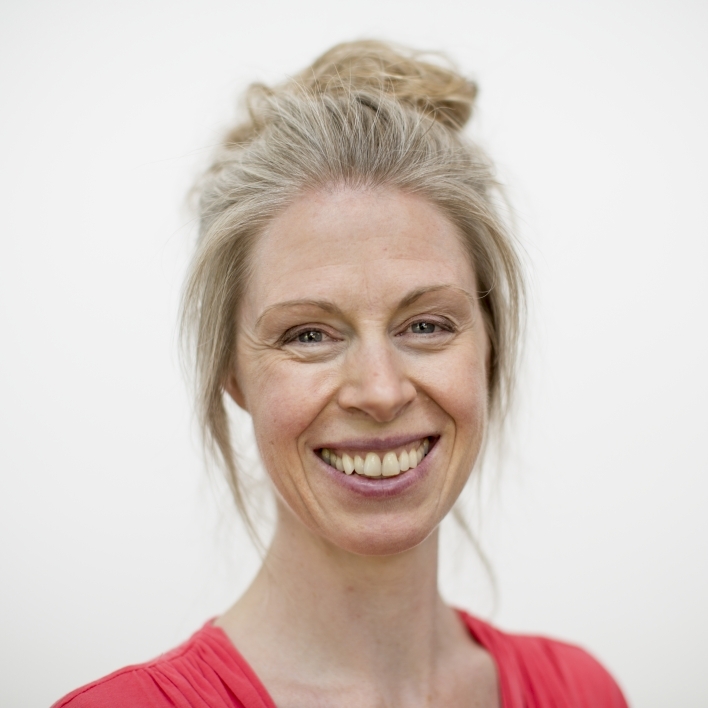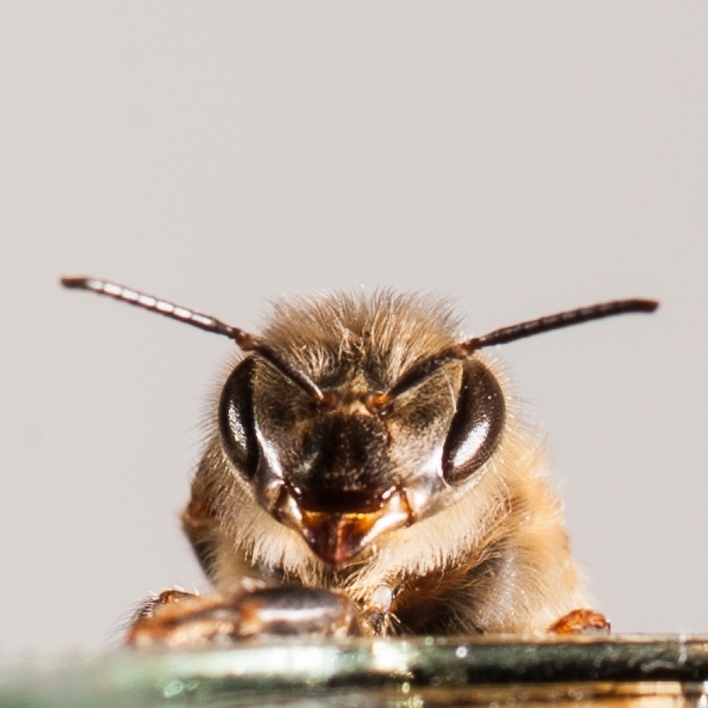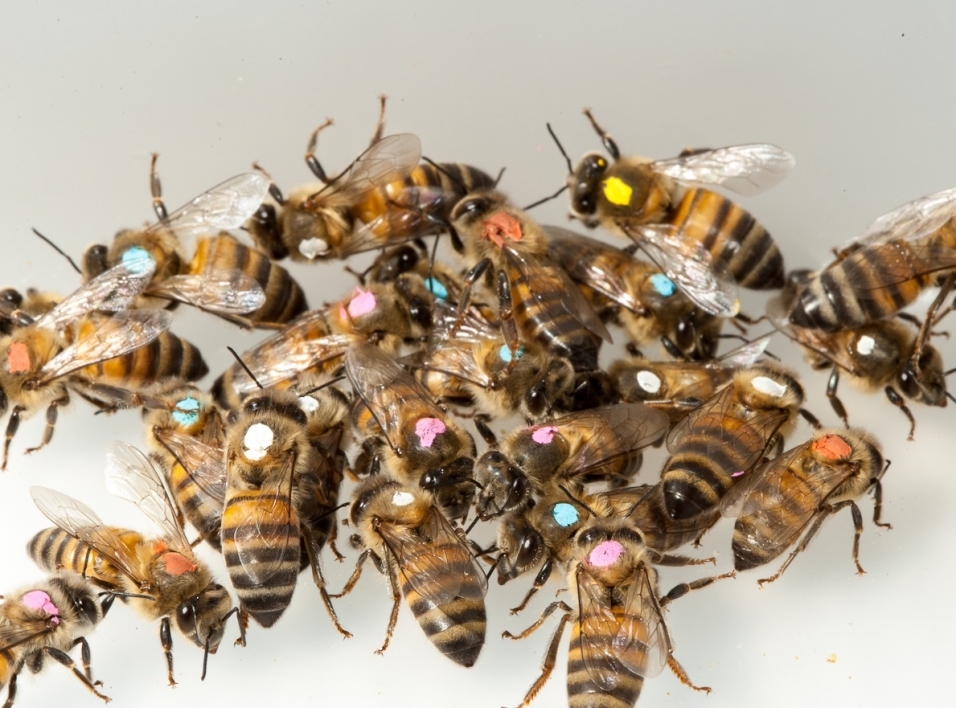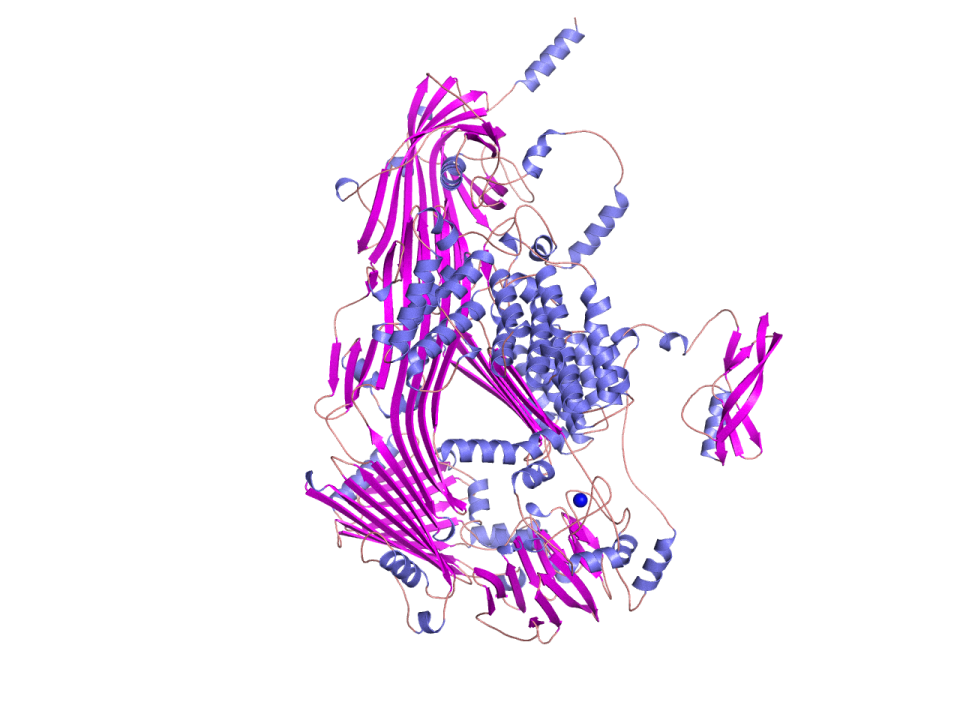$1.1M in funding to unlock power of critical protein in honeybees
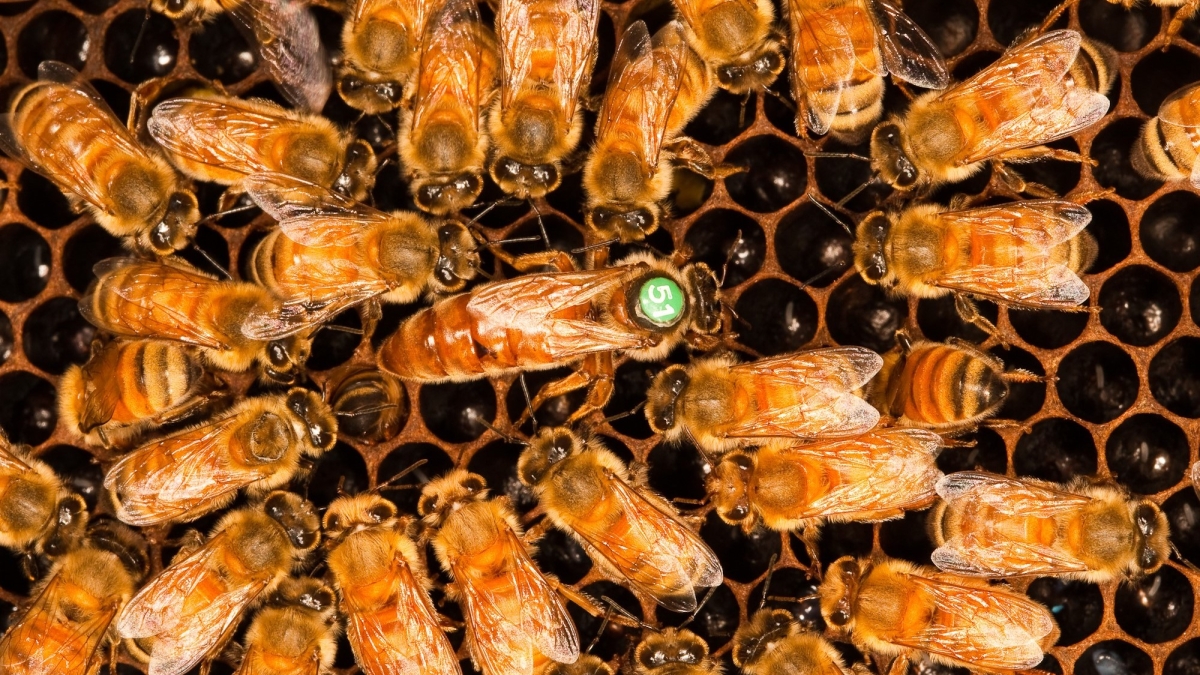
Vitellogenin is a critical protein that supports honeybee health. Photo courtesy Christopher Bang
Vitellogenin is a protein that may be the key to optimizing health and reproduction in all egg-laying species. This protein has been around since the start of animal life; even dinosaurs had it.
Gro Amdam, a professor in the School of Life Sciences at Arizona State University, has been fascinated by the potential of vitellogenin to change the way we think about animal reproduction and overall health. Recently, Amdam and international collaborators were awarded $1.1 million to advance vitellogenin research and support honeybee health.
Before moving to the United States, as a PhD student at the Norwegian University of Life Sciences, Amdam decided to pursue the study of vitellogenin in honeybees. Initially, academics thought vitellogenin was just another protein in egg yolk, crucial for almost all egg-laying animals, but nothing spectacular. Despite the common belief, Amdam knew there was more to the vitellogenin story — something exciting and ready to be discovered.
As part of her PhD work, she found interest in fluctuations of this protein, particularly in bee workers. She found that different patterns of expression were closely related to fundamental aspects of the bees' life cycle. Honeybees were the perfect model organism to investigate this protein. They are easy to breed and produce vitellogenin in vast amounts, with some bees producing up to several hundred micrograms per day.
Amdam said this protein is like a swiss knife: It possesses multiple modifications and add-ons, which are critical to its function.
After more than 20 years of investigating vitellogenin, $1.1 million was awarded to Amdam’s summer home campus, the Norwegian University of Life Sciences. The funds come from a competitive, multidisciplinary and international program that receives over 2,000 applications in all fields of biology and Amdam was one of the 82 funded. This award will be key in financing reseaerch at ASU and with international collaborators.
Gro Amdam
Amdam is thrilled by the support and endorsement of this award.
"Getting funded is one thing," she said, "but the fact that an international community recognized the importance of (vitellogenin) is the most exciting! This work has been considered unique and extremely competitive in an open arena."
Their multi-year project aims to unlock the power of vitellogenin variants in honeybees. Its broad scope starts at the genetic and molecular level and ends with investigating its effects on veterinary medicine, agriculture and society at large.
"We are going from genetics and simulations of the protein structure to molecular dynamics, all the way to growing the protein in animals and observing its effect in bee colonies," Amdam said.
Vitellogenin is a protein that is shared among various species. Understanding the role of vitellogenin in health and reproduction is critical when it comes to sustainable food sources. The goal is to develop new techniques for breeding healthier animals, not only honeybees but also fish and poultry.
"With this proposal, we are taking the step from honeybees to a platform for application in animals that are our food sources," Amdam said.
"This allows us to take an entirely new look at these species, like the bee, chickens or fish, and say, 'Are we taking care of this protein?' If we ignore it, then other things will fall apart," Amdam said. "This leads towards healthier farm animals so we can better understand how they utilize macronutrients to support health and reproduction."
Amdam and her team have been instrumental in the paradigm shift in vitellogenin research. "Our research has pushed this field forward," she said.
With so much more to learn, expanding our understanding in this field has grown into a team effort, and Amdam has been able to share her excitement for vitellogenin with former and current students, who plan to take her initial research to new levels. For Amdam, vitellogenin is "a gift that keeps giving."
"I can say that I've trained people that have been important in moving this knowledge forward, and this is super rewarding!" Amdam said.
More Science and technology

Podcast explores the future in a rapidly evolving world
What will it mean to be human in the future? Who owns data and who owns us? Can machines think?These are some of the questions…
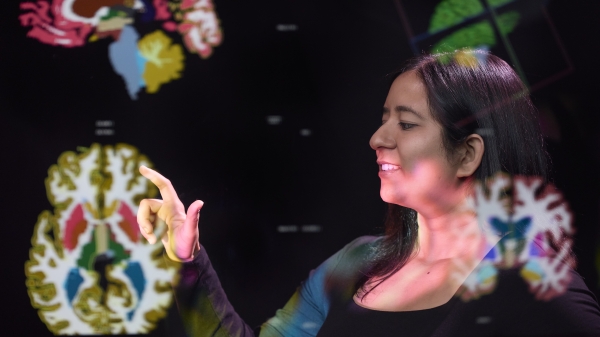
New NIH-funded program will train ASU students for the future of AI-powered medicine
The medical sector is increasingly exploring the use of artificial intelligence, or AI, to make health care more affordable and…

Cosmic clues: Metal-poor regions unveil potential method for galaxy growth
For decades, astronomers have analyzed data from space and ground telescopes to learn more about galaxies in the universe.…
